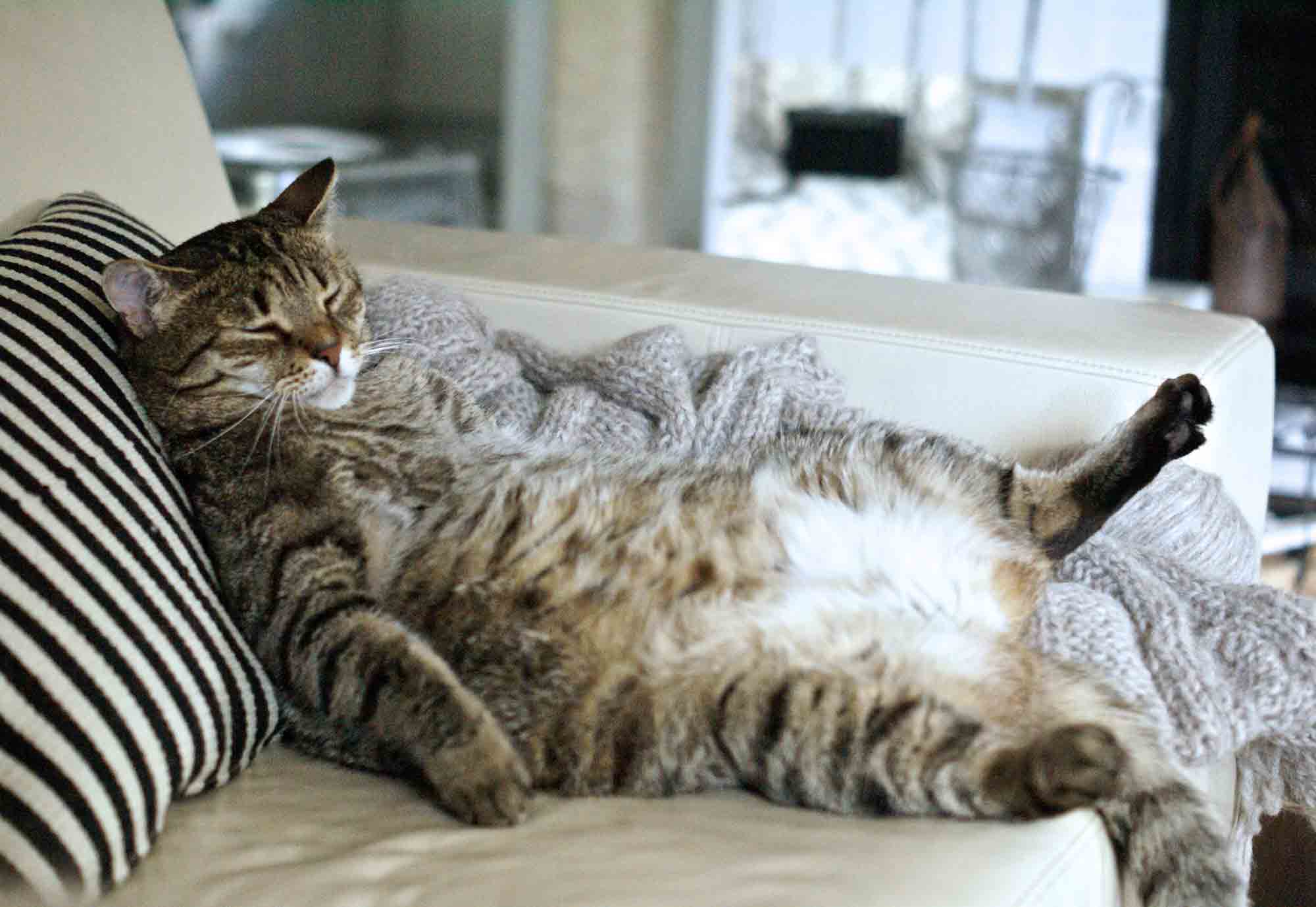Help! I Have an Overweight Pet!
 Have the winter blahs left your pet with a few extra pounds around the middle? Have you noticed that you both are sitting on the couch a wee bit too much? As we welcome the return of the longest (and sunniest) days of the year, it’s easier than ever to get motivated to shed those few extra pounds.
Have the winter blahs left your pet with a few extra pounds around the middle? Have you noticed that you both are sitting on the couch a wee bit too much? As we welcome the return of the longest (and sunniest) days of the year, it’s easier than ever to get motivated to shed those few extra pounds.
Not sure if you have an overweight pet? Rocklin Ranch Veterinary Hospital is here with some tips for how to tell if your pet is at the correct weight, and if not, provide some help for your overweight pet.
Why Is Pet Weight Important?
According to the latest veterinary surveys, over 50% of our pets in the U.S. are now either overweight or obese. That means that 80 million pets! Just like in people, pets who are overweight are at greater risk for developing debilitating disease, such as arthritis, diabetes, heart disease, and many forms of cancer.
In addition, because pets age so much faster than we do, you can expect to see these diseases pop up even earlier in their lives. In fact, studies show that pets who are leaner live a full 2 years longer then their heavier counterparts.
Help for an Overweight Pet
How can you tell if your pet is actually overweight? Luckily, veterinarians have developed a system called body condition scoring, which is a great tool for assessing not only weight but also condition. We use this tool in our preventive care exams and can show you how to do it at home, too.
Of course, weight is also important, as is breed, age, and lifestyle, in determining if your pet is overweight. If your pet needs to shed some pounds, it’s essential to work with your veterinarian to formulate a new diet and exercise plan. Pets need specific nutrition to thrive, even on a diet, so don’t embark on this alone.
Here are a few things you can do to help an overweight pet.
Come see us – In addition to helping you form a weight loss program for your overweight pet, we also need to make sure we’re starting off right. Especially as pets age, we want to rule out any underlying disease that could be causing weight gain. Many times, we’ve seen pet diets fail, only to learn that underlying disease was the cause. Preventive care exams and annual blood and urine testing can give us a clear start with a weight loss program.
Calculate calories – It’s important to know how much to feed your pet, and there are specific formulas for how to calculate how many calories they need. Again, ask us if you are unsure, and we’ll help you arrive at the right number.
Measure, measure, measure – Once you know how much to feed, you need to measure it out for every meal. There are handy (and free) measuring cups that we can give you to make sure you have it right. If more than one person in your family feeds your pet, make sure you are all on the same page.
Treat them right – We are all about treating your pet! After all, this is one of the most fun things about pets, seeing their eyes light up when the treats come out. But many commercial treats are, in a word, junk food. Don’t sabotage your weight loss efforts. Give them fresh vegetables, like carrots, green beans, or a bit of sweet potato, instead. Make sure that treat calories are factored in to the overall total calories your pet receives each day.
Get off the couch – It’s time to hustle a bit! Exercise is extremely important for weight loss and fitness. Get your pet off the couch with daily walks for your dog or games for your cat that get them moving for 5-15 minutes per day. Pro tip: If you have stairs in your house, change your pet’s feeding location from upstairs to downstairs each morning, so they have extra movement built in to their day.
Do you suspect you have an overweight pet? Need more exercise tips? Give us a call

